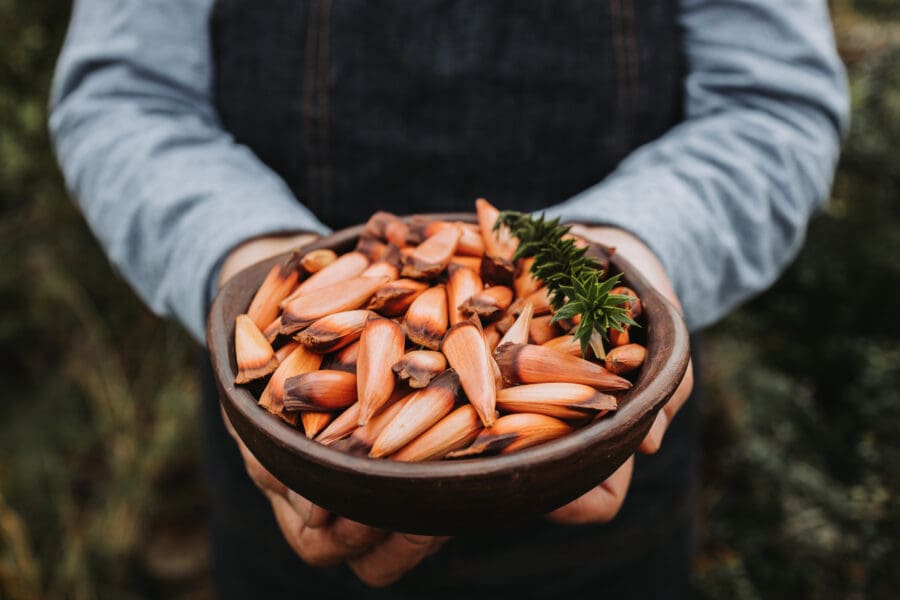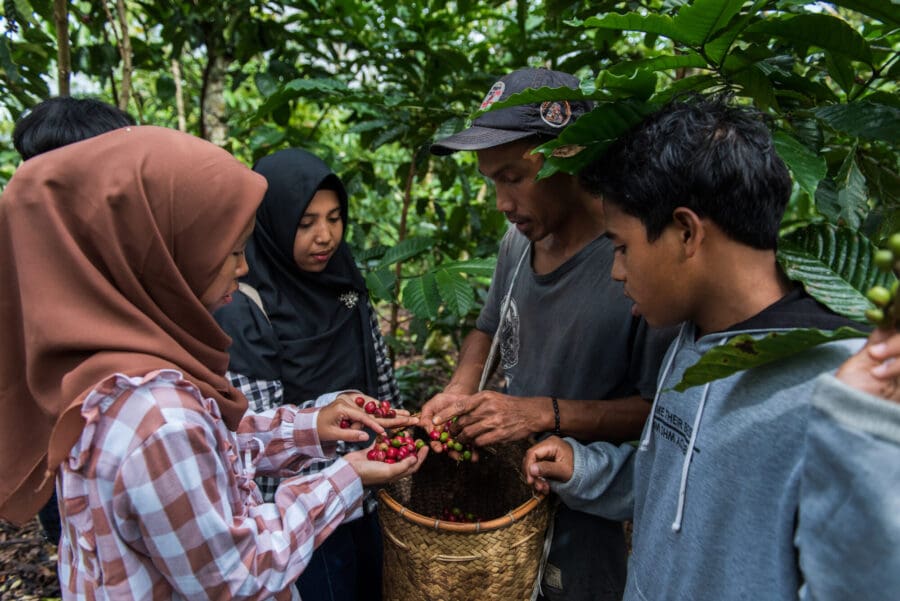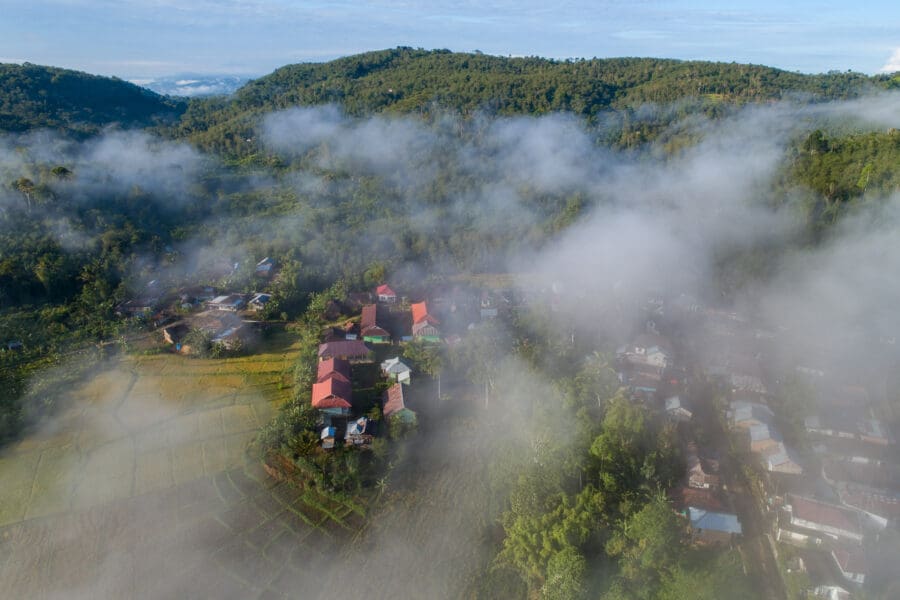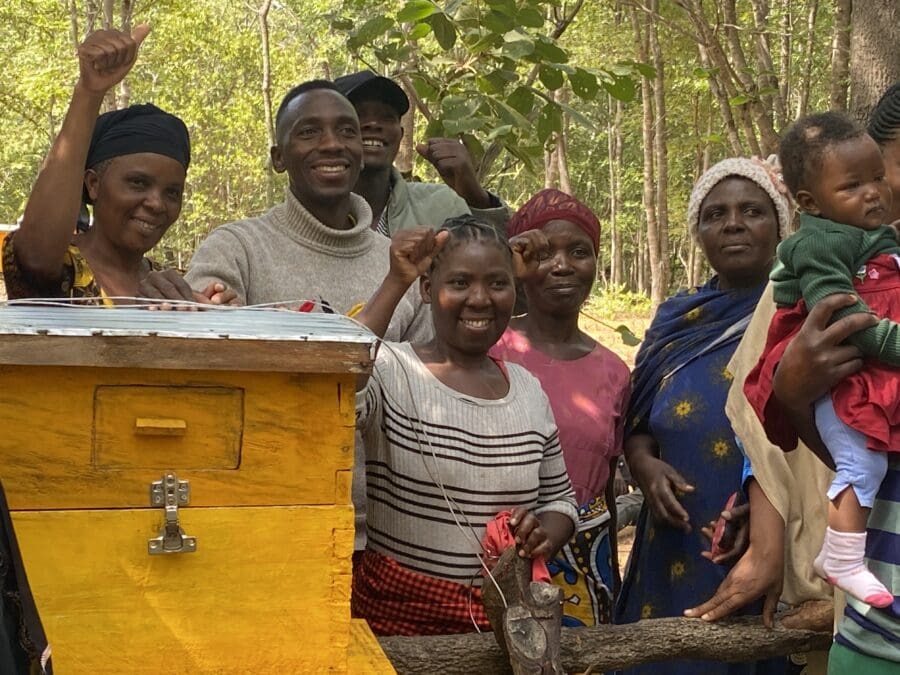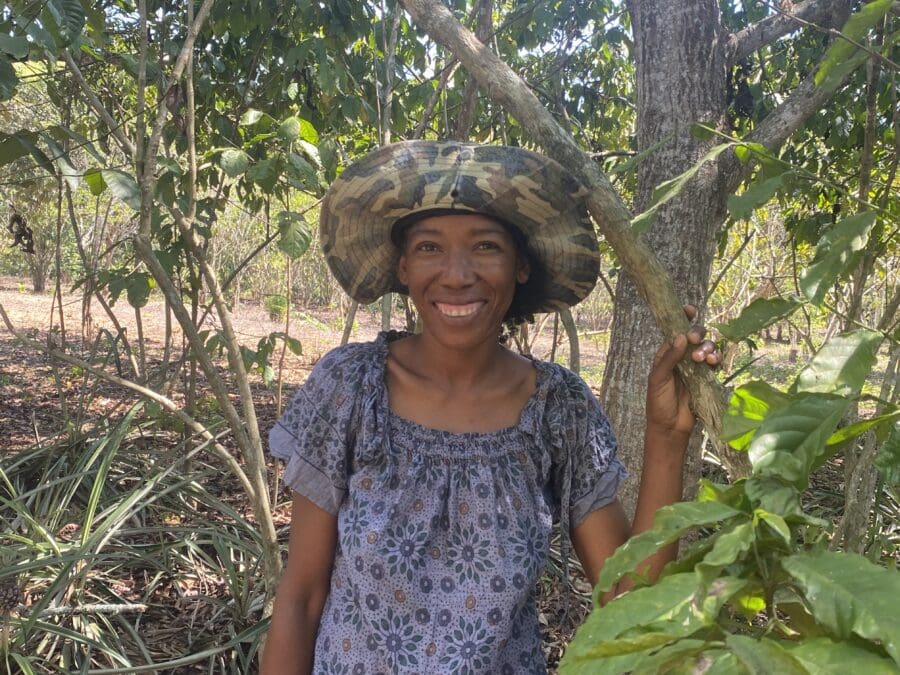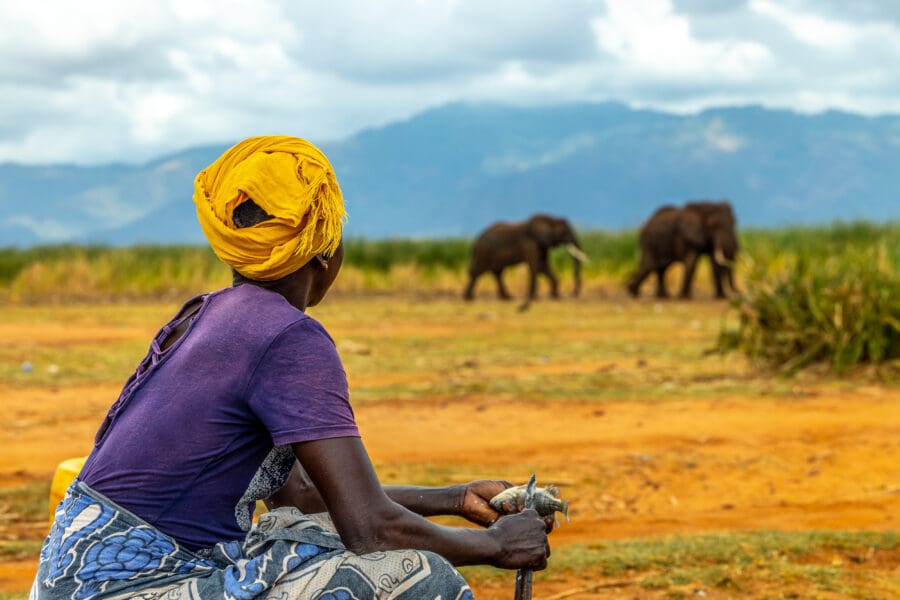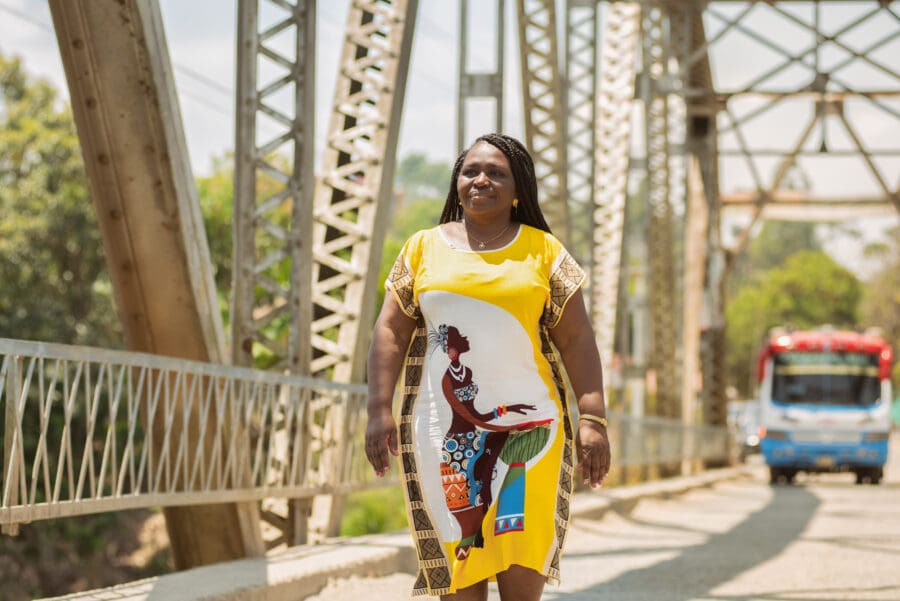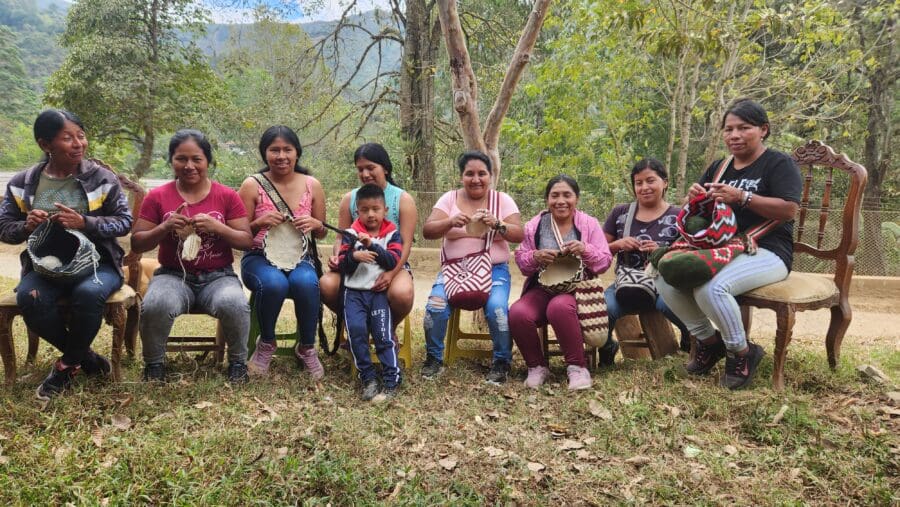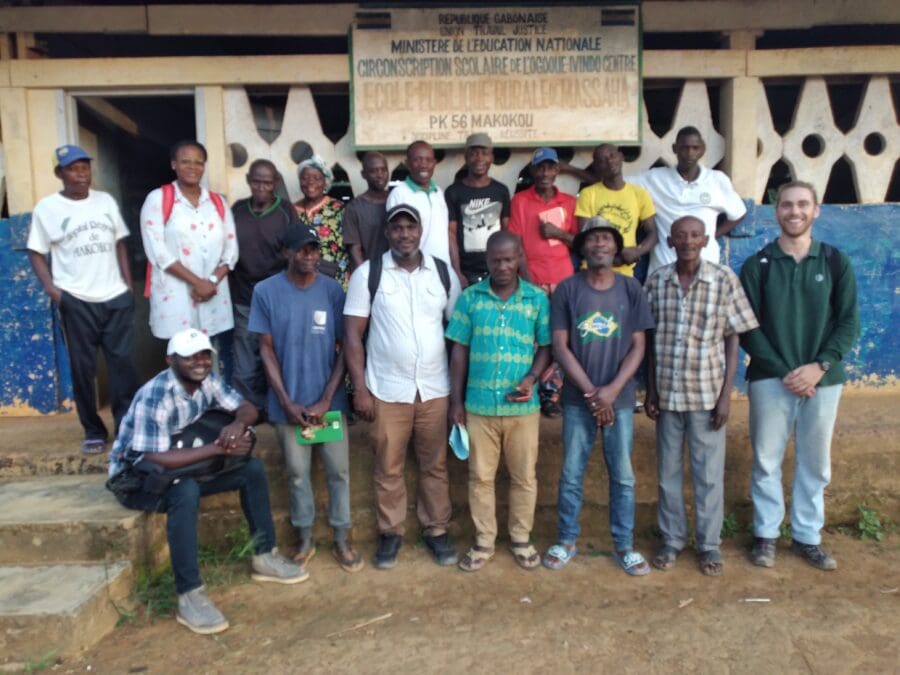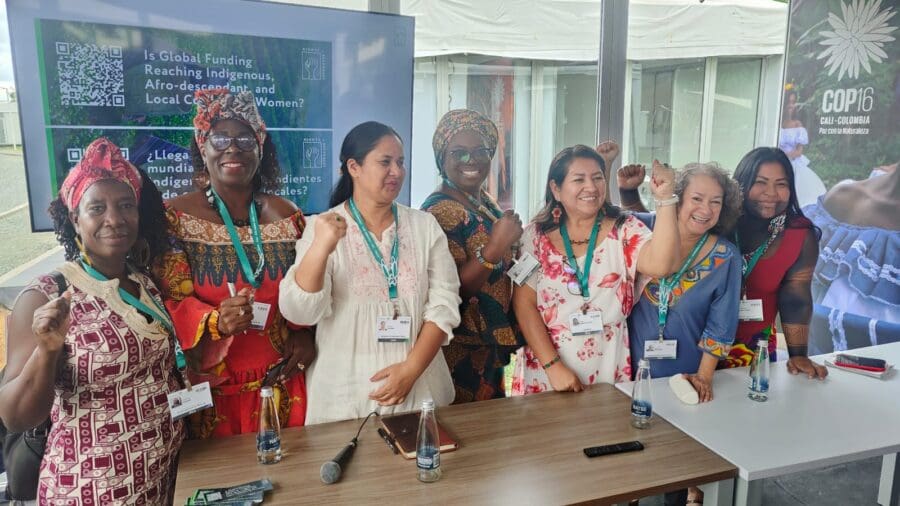As global leaders prepare to gather in Belém, Brazil, this November for the 30th UN Climate Conference (COP30), the Rights and Resources Initiative (RRI) and its global partners are calling for the summit to serve as a turning point for Indigenous Peoples, Afro-descendant Peoples, and local communities who safeguard the world’s forests and biodiversity.
Novo relatório mostra progresso inconsistente em nível nacional em relação aos direitos de posse de terras para Povos Indígenas, Povos Afrodescendentes e comunidades locais
New report shows inconsistent domestic progress on tenure rights for Indigenous Peoples, Afro-descendant Peoples, and local communities
A new report by RRI, Forest Peoples Programme, and the ICCA Consortium assessing 30 high-biodiversity countries across Africa, Asia, and Latin America finds that while most countries have legal pathways to advance rights-based conservation, in practice, communities’ contributions to national conservation efforts continue to be inadequately recognized or supported.
The First Global Congress of Indigenous Peoples and Local Communities from the Forest Basins brings together forest guardians from the Amazon, Congo, Borneo-Mekong-Southeast Asia, and Mesoamerica. These territories, long safeguarded by Indigenous Peoples and local communities, are essential to the Earth’s biodiversity and carbon balance—providing powerful solutions to the climate crisis.
There are 13,318 villages in Tanzania, and of them, only 34% have a Village Land Use Plan (VLUP). A VLUP is a crucial prerequisite for obtaining a Certificate of Customary Right of Occupancy—the equivalent of securing land tenure. This can be especially important for women, who are often marginalized in land inheritance, lack access to credit services, and have little voice in disputes. Since 2021, the Ukijani project has helped issue more than 1,700 Certificates in villages throughout the country.
With population growth in Madagascar, land is in ever shorter supply and conflicts over land ownership are multiplying. We must build greater community recognition of women’s important role in society—not as competitors to men, but as people working together towards a common goal of better livelihoods and sustainable land management.
Decades after the world adopted what continues to be the most comprehensive roadmap for women’s rights, RRI’s latest report highlights enduring challenges in securing the rights of Indigenous, Afro-descendant, and local community women.
This is the story of the president of the Association of Afro-descendant Women of Northern Cauca, Colombia, who faced the threats of armed conflict to fight for the rights of Afro-descendant women.
As the fight for climate justice continues, acknowledging the connections between land, water, ecosystems, and human communities is critical for the realization of positive and lasting change.
A new RRI study shows how Indigenous women-led enterprises boost local economies and are important for territorial governance and climate resilience.
Gabon’s Massaha communities are documenting the rich biodiversity stored in their ancestral territories to demonstrate the transformative power of community-led conservation. Can they help one of the world’s most forested countries conserve 30% of its biodiversity by 2030?
A new study examining the state of global financing for Afro-descendant, Indigenous, and local community women launched at the UN CBD COP16 addresses a crucial lack of data on gender equity-focused funding and was launched by the Rights and Resources Initiative and the Women in Global South Alliance.

